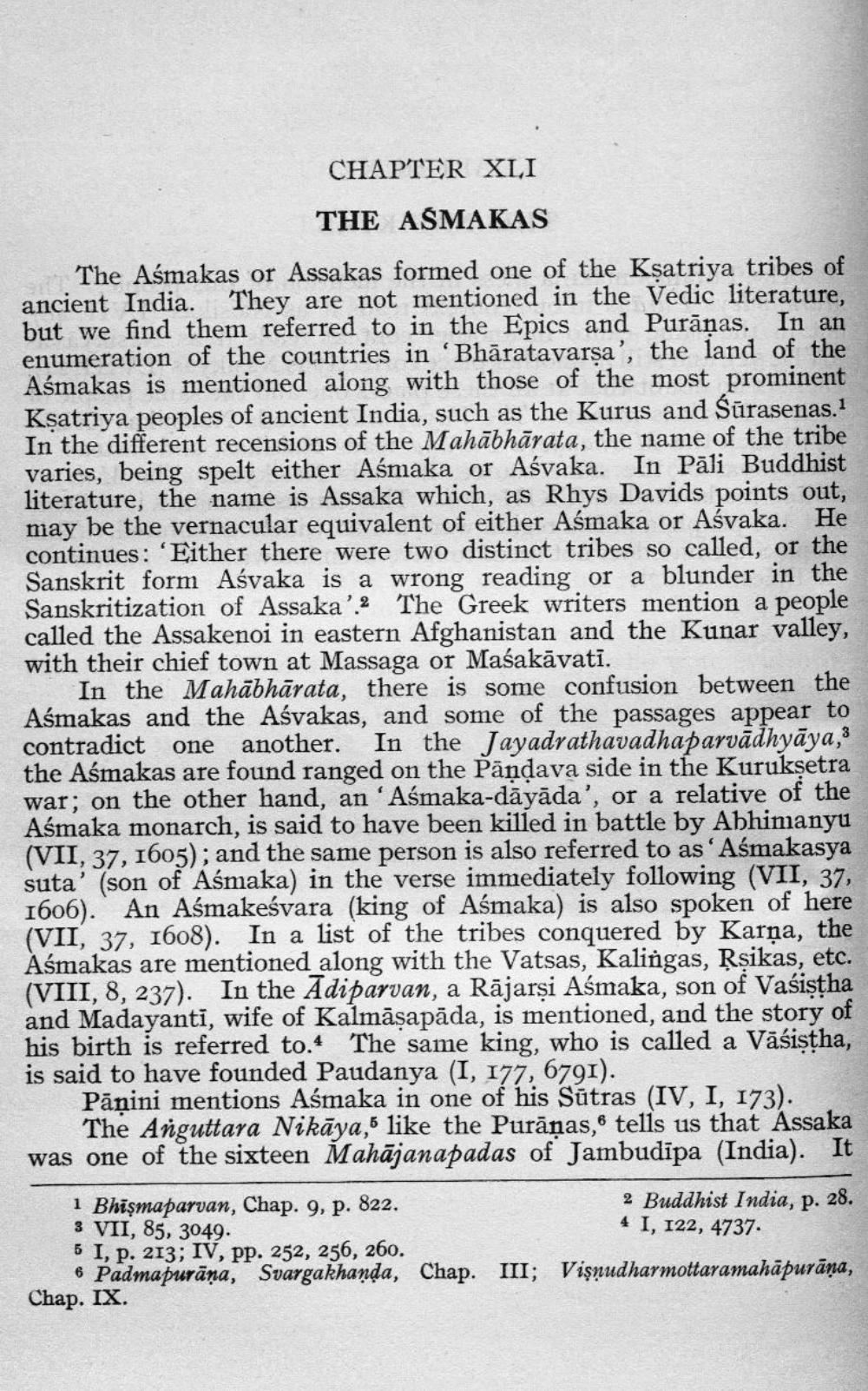________________
CHAPTER XLI
THE ASMAKAS
The Aśmakas or Assakas formed one of the Kṣatriya tribes of ancient India. They are not mentioned in the Vedic literature, but we find them referred to in the Epics and Puranas. In an enumeration of the countries in 'Bharatavarsa', the land of the Aśmakas is mentioned along with those of the most prominent Kṣatriya peoples of ancient India, such as the Kurus and Surasenas.1 In the different recensions of the Mahabharata, the name of the tribe varies, being spelt either Asmaka or Aśvaka. In Pali Buddhist literature, the name is Assaka which, as Rhys Davids points out, may be the vernacular equivalent of either Aśmaka or Aśvaka. He continues: 'Either there were two distinct tribes so called, or the Sanskrit form Aśvaka is a wrong reading or a blunder in the Sanskritization of Assaka'.2 The Greek writers mention a people called the Assakenoi in eastern Afghanistan and the Kunar valley, with their chief town at Massaga or Masakāvati.
In the Mahabharata, there is some confusion between the Asmakas and the Aśvakas, and some of the passages appear to contradict one another. In the Jayadrathavadhaparvadhyaya,3 the Aśmakas are found ranged on the Pandava side in the Kurukṣetra war; on the other hand, an 'Aśmaka-dāyāda', or a relative of the Asmaka monarch, is said to have been killed in battle by Abhimanyu (VII, 37, 1605); and the same person is also referred to as Asmakasya suta' (son of Aśmaka) in the verse immediately following (VII, 37, 1606). An Aśmakeśvara (king of Aśmaka) is also spoken of here (VII, 37, 1608). In a list of the tribes conquered by Karṇa, the Aśmakas are mentioned along with the Vatsas, Kalingas, Rṣikas, etc. (VIII, 8, 237). In the Adiparvan, a Rajarṣi Aśmaka, son of Vasistha and Madayanti, wife of Kalmaṣapāda, is mentioned, and the story of his birth is referred to. The same king, who is called a Vasistha, is said to have founded Paudanya (I, 177, 6791).
Panini mentions Aśmaka in one of his Sutras (IV, I, 173). The Anguttara Nikaya," like the Puranas, tells us that Assaka was one of the sixteen Mahajanapadas of Jambudipa (India). It
1 Bhismaparvan, Chap. 9, p. 822.
3 VII, 85, 3049.
2 Buddhist India, p. 4 I, 122, 4737.
28.
5 I, p. 213; IV, pp. 252, 256, 260.
6 Padmapurana, Svargakhanda, Chap. III; Vişnudharmottaramahāpurāṇa,
Chap. IX.




